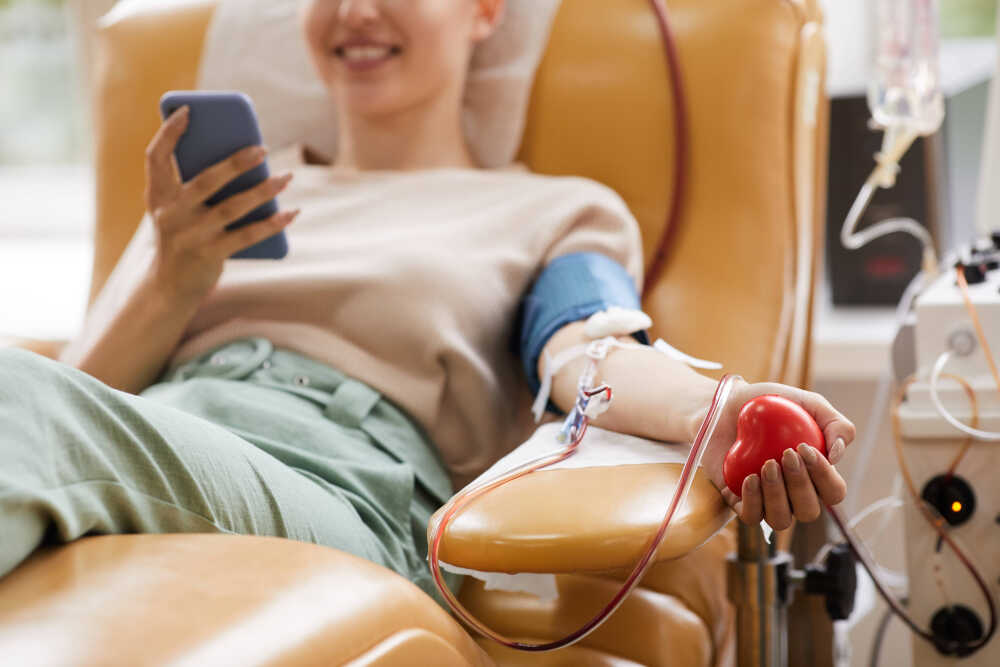By SAMANTHA TUCKER
Assistant Editor
For Donna Page of Fairdealing, donating blood is “just a way to give back to the community.” Page has donated just shy of two gallons.
“There are disasters and people that are needing blood all the time, and there’s always a shortage. So just imagine if you needed it and it wasn’t there,” she said. “But you could be a part of supplying it for somebody else.”
On Tuesday, the Daily American Republic and the American Red Cross are once again hosting the Poplar Bluff Community Blood Drive, from 8 a.m. until 1 p.m. at the Greater Poplar Bluff Area Chamber of Commerce. All March blood donors, whether at Tuesday’s drive or another, will receive a $10 Visa gift card by email within 30 days of their donation, and five people will be entered to win a $3,000 gift card.
Blood donations are one of the most direct ways to impact one’s community. Pints of blood save and improve the lives of patients being treated for traumatic injuries or surgeries, or living with chronic diseases and cancers. There are aso different types of blood donations — whole blood, platelet, double red and plasma — which prioritize different patients.
According to the Red Cross, whole blood can be transfused in its original form and separated into red cells, plasma and platelets to help multiple patients. It is most commonly given to trauma patients and people undergoing surgery.
A Power Red donation is two units of red blood cells packed into one donation. A machine separates the red blood cells from other blood components during the donation process, then returns plasma and platelets to the donor. These donations most often go to trauma patients, newborns, mothers needing emergency transfusions during birth and people with sickle cell anemia.
Platelets are another option. These cells form clots and stop bleeding, making them ideal for cancer and organ transplant patients. They also go to those facing life-threatening injuries. In a platelet donation, an apheresis machine collects platelets along with a fraction of the blood’s plasma, then returns red cells and the remaining plasma.
Platelet donations also have the quickest recovery time — the body regenerates enough whole blood to donate again in 56 days, but platelets are restored to pre-donation levels every week.
Finally, there are plasma donations. Though open to all blood types, AB positive and negative blood types are the only ones whose plasma can be given universally to patients, regardless of the recipient’s blood type. In emergency situations this plasma is used to stop bleeding.
To those on the fence about donating — and perhaps a little nervous about needles — Page offers reassurance that the process is less complex than it appears.
“It seems scary, but it’s not scary,” she noted.
Preparations like a good night’s sleep, staying hydrated and eating iron-rich foods are the best ways to have an easy blood donation experience. And according to Page, the best part is the feeling afterward.
“It makes you feel good that you’ve been able to contribute,” she said.
To register for Tuesday’s blood drive or another one, or find more information about blood donations, visit redcross.org.

